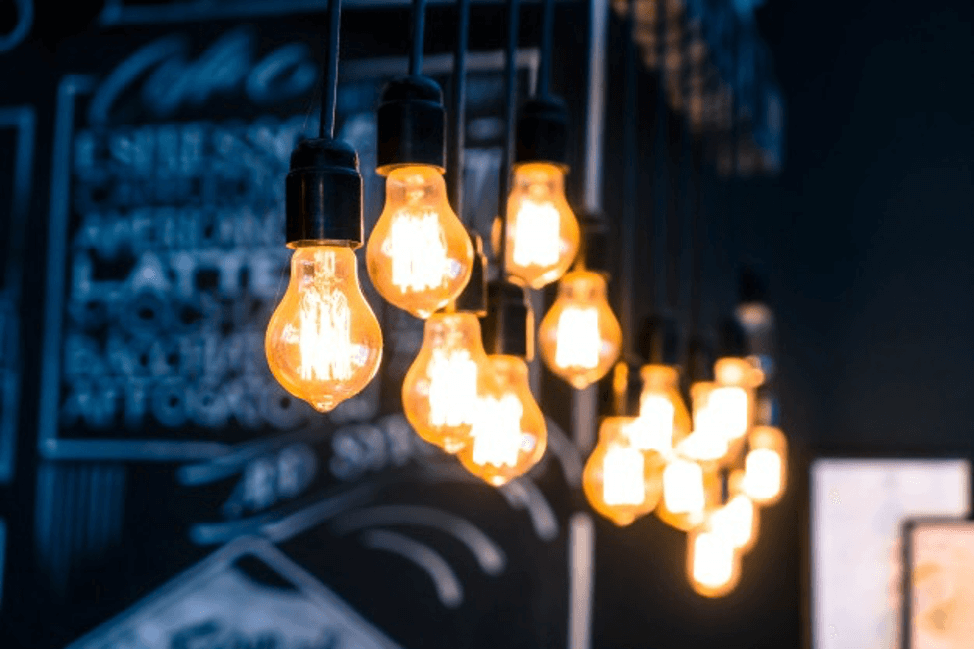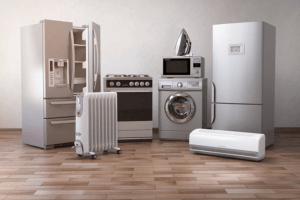As people become more aware of environmental concerns, including climate change, burning fossil fuels, carbon dioxide emissions, greenhouse gas emissions, and the likes, energy management is one aspect that people have looked into to help address the above-mentioned environmental concerns.
When energy management is talked about, energy consumption, or specifically, home energy use, and energy conservation are things that come to mind almost immediately. Looking into household energy use is a great way to start when it comes to energy conservation. But what is energy conservation, why is energy conservation important, and how does one start doing it? These are questions that need to be answered to get an understanding of the topic.
The Importance of Energy Conservation
What is energy conservation? Conservation of energy is the process of identifying energy waste and taking steps to reduce this wastage. Energy usage can cost money in different forms. One practical reason for energy saving is money.
Misuse of electricity consumes more energy, and in effect, also causes the electric bill to soar. This is especially important with the electricity continuously running, now that people are just inside their homes because of the pandemic. Trying to conserve and reduce wasteful energy can help one save financially during the process. At home, a reduction in power consumption can result to a lower electricity bill. Energy conservation efforts mean energy savings which can result to financial savings.
The importance of energy saving goes beyond financial matters. Another reason for energy conservation is to help the environment. The lesser the energy consumption, the lesser the release of toxic fumes by power plants.
How to Save Energy at Home
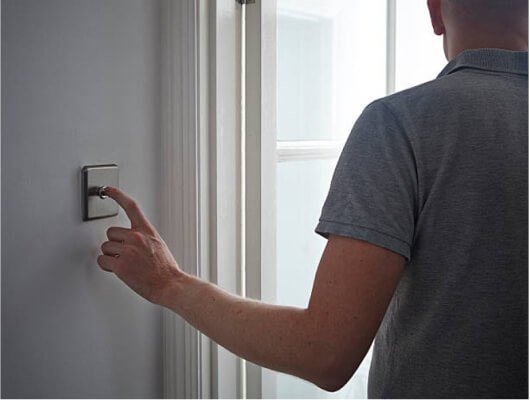
Photo source: Istockphoto
1. Turn off unnecessary lights
An easy way on how to save energy at home is through lights usage. Always check if light bulbs are unnecessarily turned on, as this still consumes energy, especially if incandescent light bulbs are used. Lighting a home with the same amount of brightness with less energy consumption is possible by switching to energy-efficient light bulbs. Installing compact fluorescent lamps (CFLs) and light-emitting diodes (LEDs) for lighting can cut the energy use to about 20% to 80%.1 These types of bulbs also last 3 to 25 times longer than the traditional incandescent.

Photo source: USESI
2. Fix any electrical problems in your home.
When it comes to family and household, safety is paramount. Check if there are any electrical issues at home; bad electrical wiring can lead to a high amount of electricity and lead to danger. If not knowledgeable in repairing such electrical problems, call a technician to fix it right away. Get in touch with a professional for a proper diagnosing of the problem.
Aside from being one of the most practical energy conservation measures, fixing electrical problems is part of home improvements and maintenance. As a responsible homeowner, check all the wirings in your home to ensure your safety and the other members of the household.
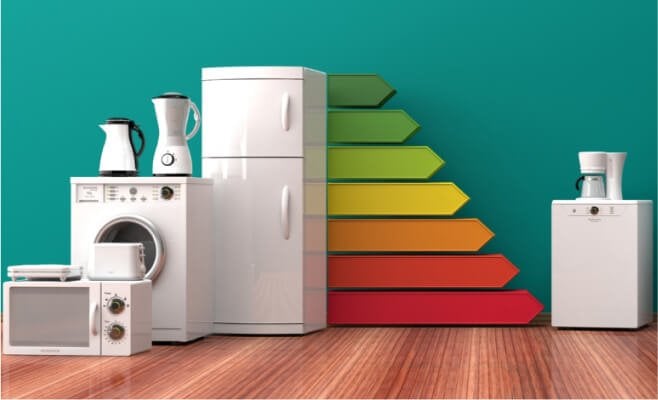
Photo source: GreenBiz
3. Use energy-efficient appliances
Energy conservation is easier if one is using energy-efficient appliances. From kitchen equipment to dining equipment to cleaning equipment, there are many available options for energy-saving home items.
Aside from being in trend, most of the new models of household appliances now have a power-saving feature, which will significantly reduce the consumption of power. One popular home appliance, and probably also a practical item nowadays, is an air conditioner. To further benefit from the comfort it brings, choose an inverter air conditioner. Not only does it address the extreme heat but also does so with lower energy consumption.
Consider also getting home items that use solar energy as either a primary energy source or as a back up power source.
Investing in energy-efficient appliances would translate to lessening energy waste and lower energy bills in the coming months and years. Additionally, the new models also offer healthier and cleaner living conditions. Research on home items that you can purchase that would help you save money and the environment.
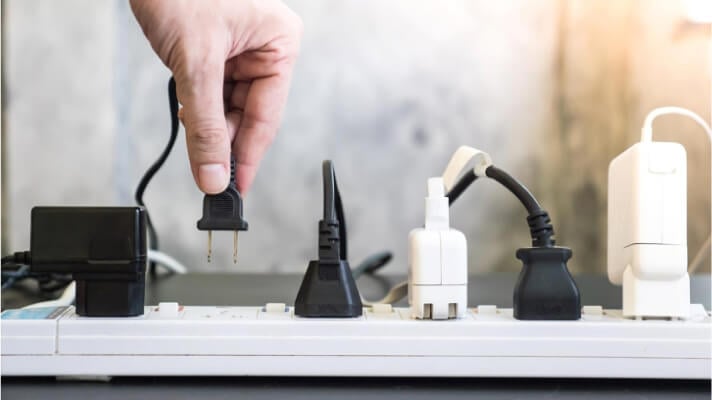
Photo source: Lifesavvy
4. Unplug appliances not in use
Ever heard of "energy vampire"? These are appliances and electronics that consume small amounts of power 24/7, even when not in use. The cost of plugged-in energy appliances can add up to a noticeable amount to your monthly electric bill. Conserve energy by unplugging devices; it will help reduce energy consumption.
Aside from energy conservation, it also promotes safety at home. Over the years, many fire incidents were caused by unplugged electric equipment. Promote home safety by ensuring that all unused appliances are disconnected from the energy socket.
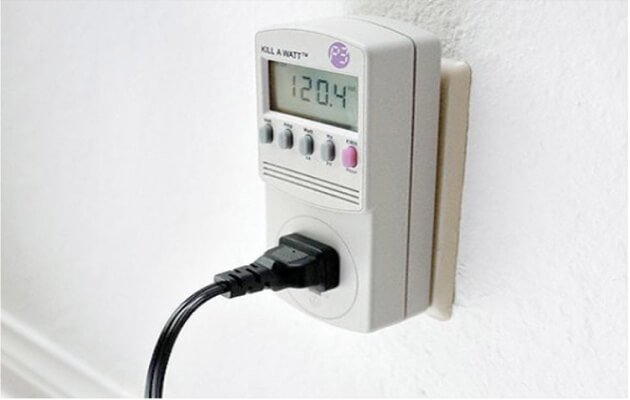
Photo source: Inhabitat
5. Use a home energy monitor
Many homeowners are not tracking their energy consumption, and do not have a comprehensive understanding of their usage, and are often surprised when the electrical bill arrives with a huge amount indicated on it. An energy monitor is a device that helps track how much energy is used at home.2 The device helps homeowners become more aware of power consumption, with some models showing the would-be corresponding amount. It also comes with a handy feature that can help spot the devices the homeowner may have not realized that are switched on.
There are many ways on how to save energy, and starting from home is the easiest. Through a conscious effort, energy conservation is more than just possible - it can even be turned into a habit and lifestyle. The small practical steps above lead to a great impact on saving on cost and the environment.
Lessandra Blog is a compilation of lifestyle, community, and
home-related articles. For real estate investment and tips on how to buy house
and lots in the Philippines, visit Lessandra’s Lifestyle and Home
Investments section. To know more about the affordable house and lots for sale
available in each Lessandra community, give the property listing section a
visit. Live in best, live in Lessandra.
Source:
1https://www.energy.gov/energysaver/save-electricity-and-fuel/lighting-choices-save-you-money/how-energy-efficient-light
2https://www.ovoenergy.com/guides/energy-guides/energy-monitors.html

